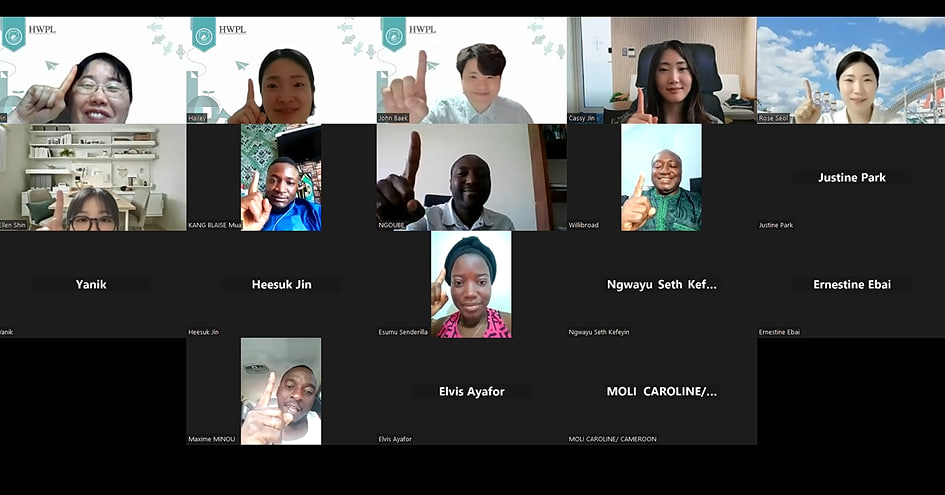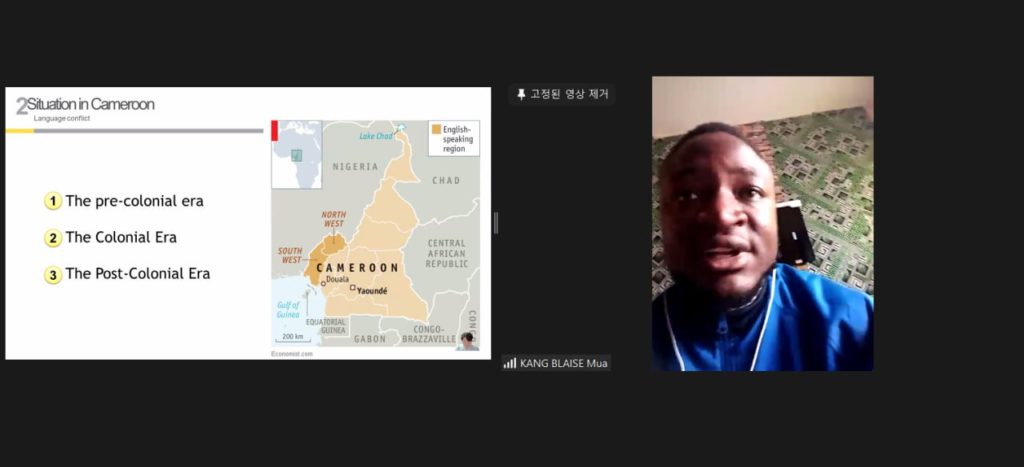Cameroon Human Rights Webinar for National Development
-Institutionalization for Peaceful Coexistence-
On April 15, the “Cameroon Human Rights Webinar for National Development” was held to raise awareness of human rights and peace, hosted by HWPL. Lawyers, law and political science students, a project manager of NGO, and figures from peace education and IPYG attended the event, titled “Institutionalization for Peaceful Coexistence,” to find the answer for peace.

Cameroon was colonized by France and Britain after the defeat of Germany during World War I. After its independence, English and French became the official languages, but only about 20% of the people spoke English and the rest spoke French, causing conflicts between the speakers of the two languages. Then, in 2018, when the authority of French-speaking people who are the majority was expanded, the dispute began with English-speaking people who felt discriminated against. The situation became worse as the government responded violently against the nonviolent protesters.

Regarding this, Kang Blaise Mua, the President of the Student Association of the Law and Political Science at the University of Buea, said “There is a need to redress governmental strategy, such as a call for major national dialogue and assistance from other peace organizations around the world.”.
Willbroad Dze- Ngwa, the President of Heritage Higher Institute of Peace and Development Studies, emphasized the importance of peace education, saying “Peace education is taught in some of our schools. What we have to decide to do is to establish clubs in different schools in order to carry on peace and effective citizenship. If we multiply this webinar, our context, and our strategies, peace would reign in all the corners of Cameroon and the world. Because each of us is supposed to be an active factor of peace education.”.
Through this webinar, participants were able to recognize that peaceful coexistence is needed for the national development of Cameroon. For peaceful coexistence to be achieved, three elements were presented. They were: peace education that helps children recognize the importance of peace and grow up as peaceful citizens, the establishment of gatherings to resolve disputes through dialogue rather than force, and international law that can present a new paradigm for peace.
HWPL introduced the Declaration of Peace and Cessation of War (DPCW), an international law for peace, and the Mindanao case where peace came true based on it, as well as peace education and Youth Empowerment Peace Class (YEPC) and Youth Engagement & Peacebuilding Working Group (YEPW).













